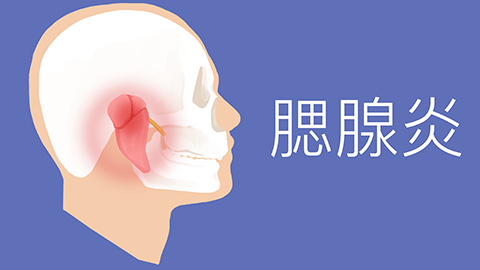Why do people get chronic parotitis?
In general, chronic parotitis may be caused by factors such as reduced saliva secretion, impaired salivary drainage, chronic obstructive parotitis, chronic recurrent parotitis, or salivary stones. It is recommended to seek medical attention promptly, identify the underlying cause, and receive symptomatic treatment under a doctor's guidance. Specific analyses are as follows:

1. Reduced saliva secretion: Insufficient daily water intake or taking anticholinergic medications can lead to decreased saliva production. This weakens saliva's natural cleansing action in the parotid gland, making bacterial growth easier and increasing the risk of inflammation. It is advisable to increase fluid intake, maintaining 1500–2000 mL per day. If medication is the cause, consult a physician to adjust the treatment plan and improve saliva secretion.
2. Impaired salivary drainage: Narrowing, bending, or trauma-induced deformation of the parotid duct can obstruct normal saliva outflow, leading to saliva accumulation within the gland and potentially causing chronic inflammation. Massaging the parotid gland may help promote saliva drainage—5 to 10 minutes per session, 2 to 3 times daily. Salivary duct irrigation under medical supervision may also be performed to clear blockages.
3. Chronic obstructive parotitis: Often caused by parotid duct stones, foreign body obstruction, or thickened duct walls, this condition is characterized by recurrent swelling of the parotid gland and pain during meals. Patients may follow medical advice to use antibiotics such as cefixime dispersible tablets, amoxicillin capsules, or metronidazole tablets to control infection.
4. Chronic recurrent parotitis: Associated with immune dysfunction and genetic factors, this type commonly affects children and adolescents, presenting as repeated episodes of parotid swelling occurring every few weeks or months. Symptom relief may be achieved under medical guidance using medications such as ribavirin granules, Pudilan anti-inflammatory oral liquid, or cefaclor capsules.
5. Parotid stones: Mineral deposits in saliva can form stones that block the parotid duct, impairing saliva drainage and triggering chronic parotitis. Symptoms include parotid swelling and pain, especially worsened during eating. Smaller stones may pass naturally with increased water intake and regular gland massage. Larger stones may require surgical removal to restore duct patency and prevent recurrent inflammation.
Maintaining good oral hygiene is essential in daily life—rinsing the mouth after meals, brushing teeth thoroughly morning and night, and undergoing regular dental check-ups. Avoid excessive consumption of spicy or acidic foods to reduce irritation to the parotid gland and lower the risk of chronic parotitis flare-ups.







